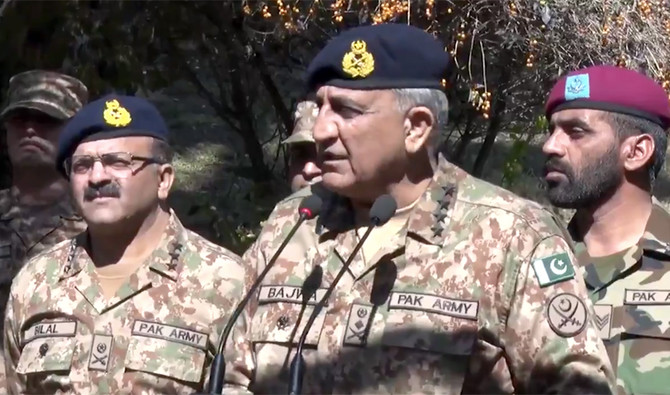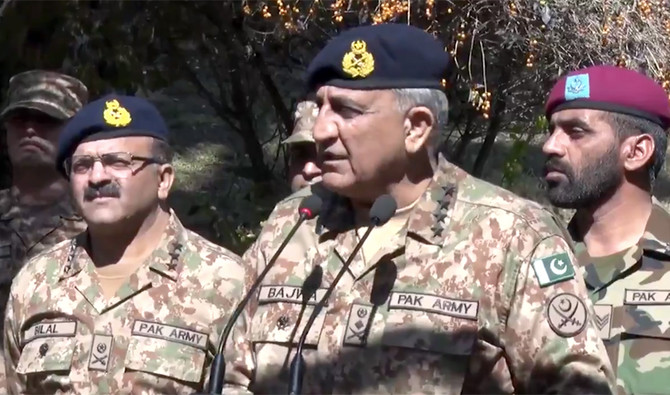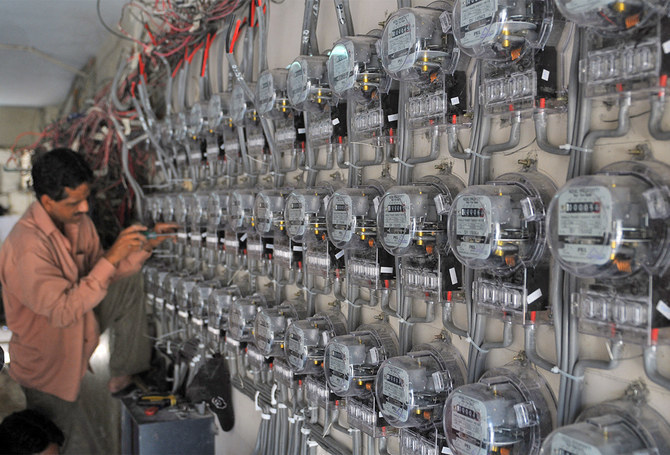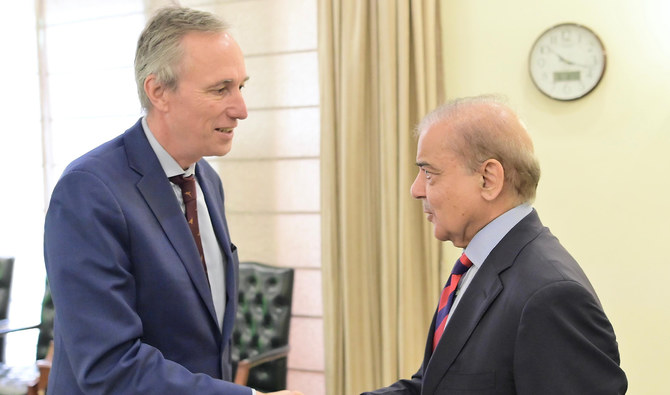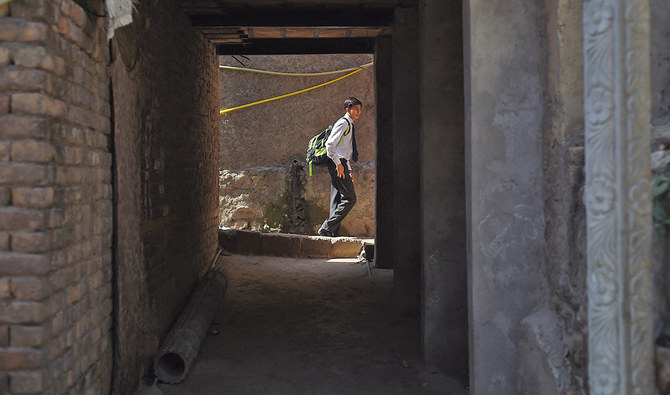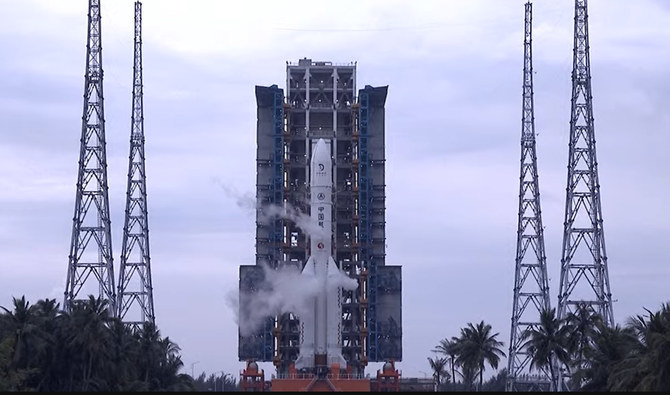ISLAMABAD: Pakistani army chief Gen Qamar Bajwa warned India on Friday against carrying out an attack on Pakistan, saying any “misadventure” would be reciprocated in equal measure.
The army chief’s statement came during a visit to the Line of Control, or de factor border, between Pakistan and India in Kashmir to review the state of troop preparedness and morale.
Tensions between nuclear-armed neighbours Pakistan and India have sharply escalated since last week’s suicide attack in the disputed region of Kashmir in which 40 Indian troopers were killed. Jaish-e-Mohammed, a group believed to be based in Pakistan, claimed responsibility for the attack and India has warned Islamabad of a “strong response” to the assault.
Pakistan denies any state complicity in the attack and said on Friday it had taken control of Jaish headquarters in the southern Punjab city of Bahawalpur and appointed an administrator.
“Pakistan is a peace-loving country but we will not be intimidated or coerced,” the chief said in an address to soldiers. “Any aggression or misadventure shall be paid back in same coin.”
Earlier on Friday Pakistan army spokesman Maj. Gen. Asif Ghafoor also warned India against military action, saying Islamabad would respond with “full force” if attacked.
“We have no intention to initiate war, but we will respond with full force to full spectrum threat that would surprise you,” Ghafoor told reporters at a press conference. “Don’t mess with Pakistan.”
India has long held that Pakistani Islamist militant groups infiltrate into the part of Kashmir that it administers to fuel insurgency and help separatist movements. Pakistan denies this, saying it only provides Kashmiris moral and diplomatic support in their struggle for self-determination.
Pakistan and India have fought three wars since they gained independence from the British in 1947, two of them over the disputed Kashmir valley.
Ghafoor said Islamabad had delayed its response to the Kashmir attack to investigate what he called New Delhi’s baseless claims of state-sponsored terrorism by Pakistan. Following this, he said, Prime Minister Imran Khan had responded in a recorded address to the nation
on Tuesday, asking India to provide “actionable intelligence” and warning retaliation if India attacked.
“Terrorism is a regional problem and Pakistan is willing to table talks with India on the matter,” the military spokesman reiterated.
The attack in disputed Kashmir came just days before a scheduled visit to Pakistan by Saudi Crown Prince Muhammed bin Salman in which he was slated to sign agreements worth billions of dollars. Pakistan and the Kingdom eventually signed agreements worth $21 billion during the crown prince’s visit.
“When an important event for Pakistan is scheduled to happen, this type of staged action arises,” Ghafoor said, referring to the crown prince’s visit.
“The attack happened miles from the Line of Control,” the army spokesman said, referring to the de-facto border between the two countries. “The explosives used were under use by Indian security forces and administration – it didn’t come from Pakistan. The vehicle used was local, not from Pakistan. The attack [was carried out ] by a young Kashmiri, who was a resident of Indian-administered Kashmir.”
Hours after Ghafoor’s press conference, Indian finance minister Arun Jaitley said in New Delhi that India would “exercise all instruments at its command, whether it is diplomatic or otherwise” to respond to Pakistan over its alleged role in the deadly Kashmir bombing.
Referring to Islamabad’s alleged support for Islamist militant groups, Jaitley added, “I think Pakistan is riding a tiger on this issue, and a tiger never spares its own rider.”


